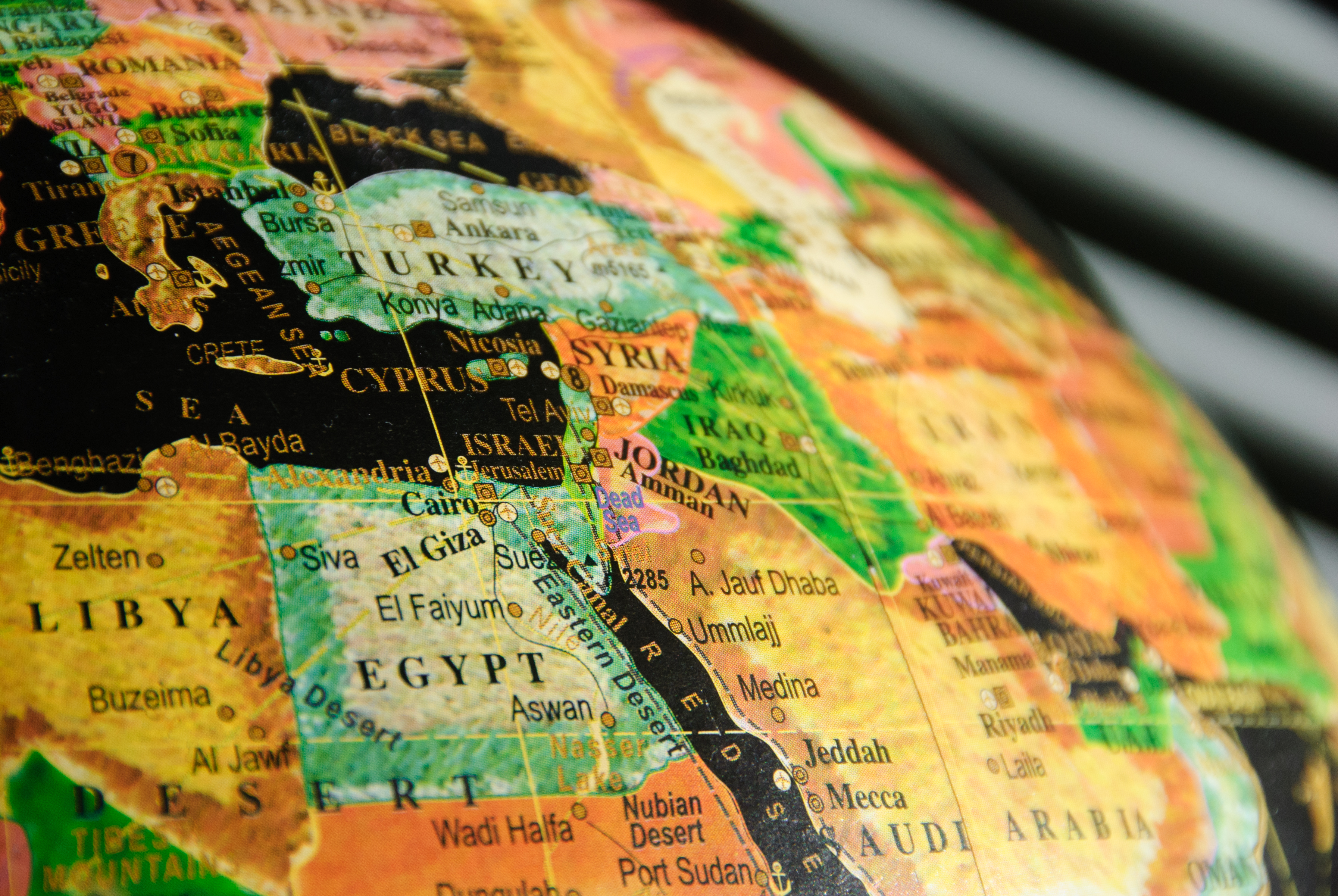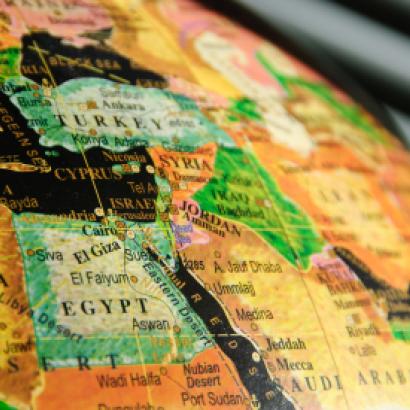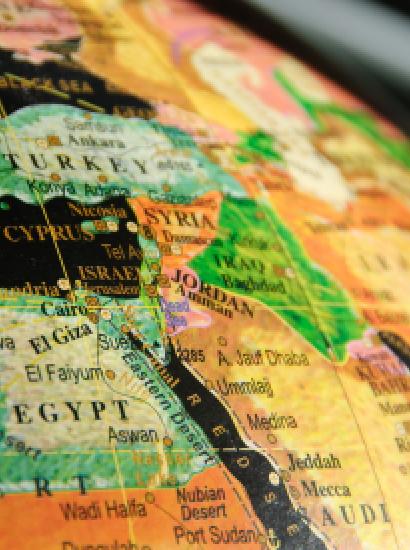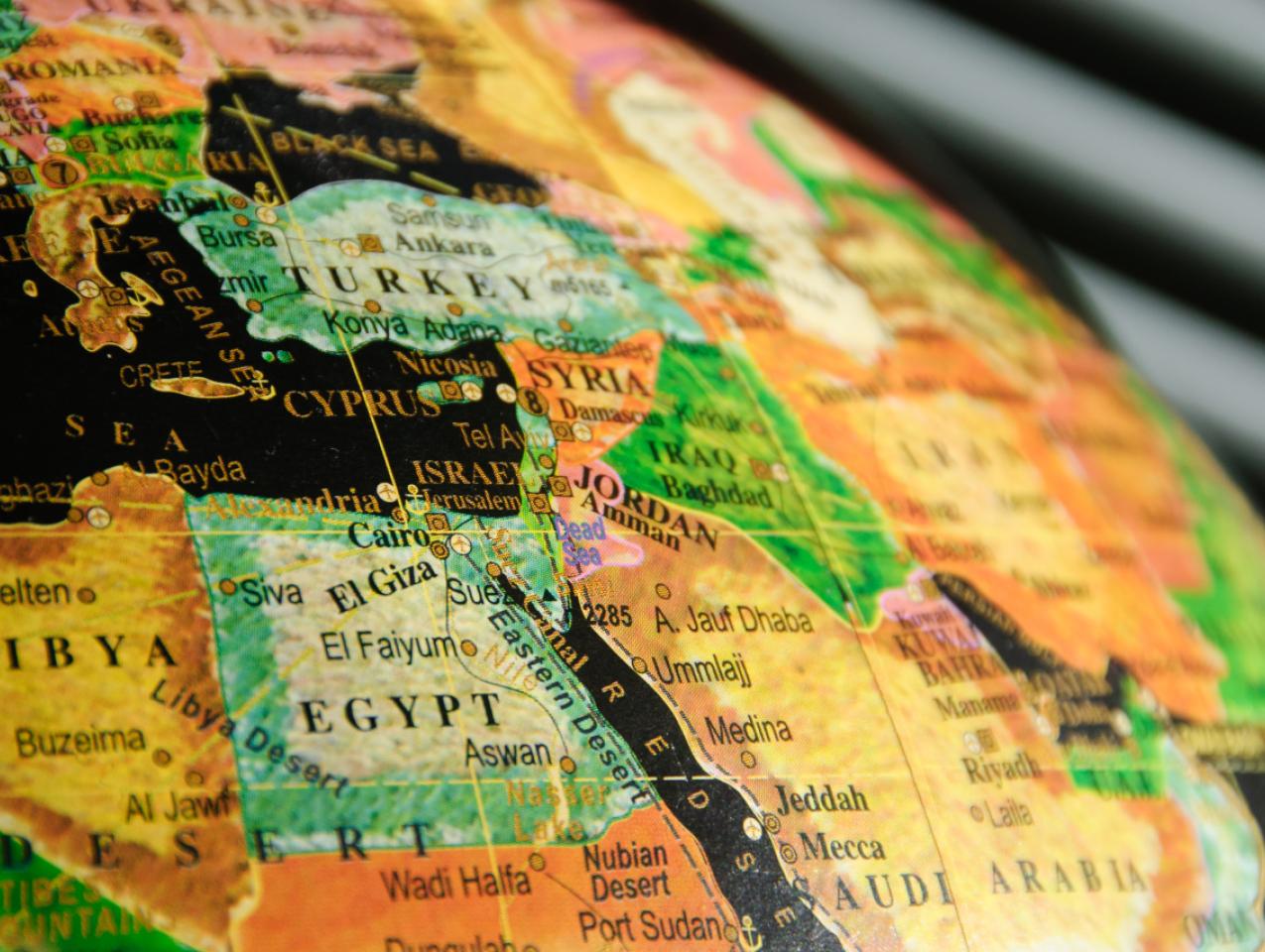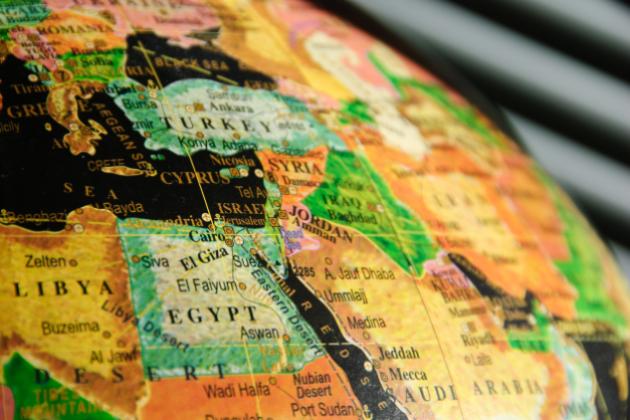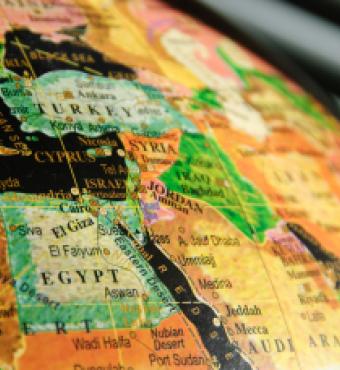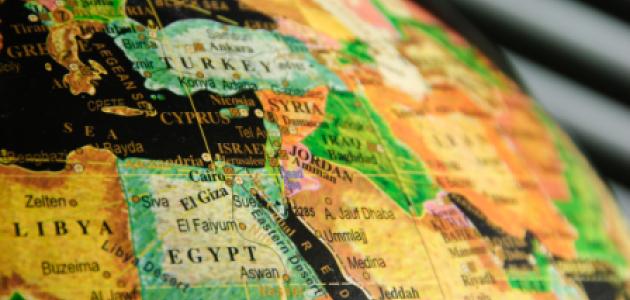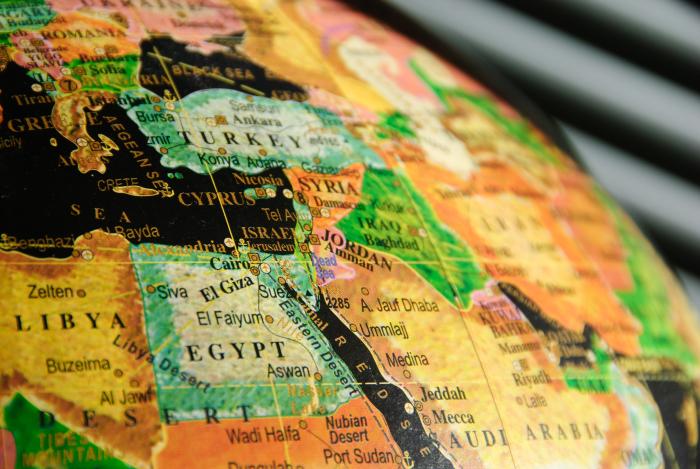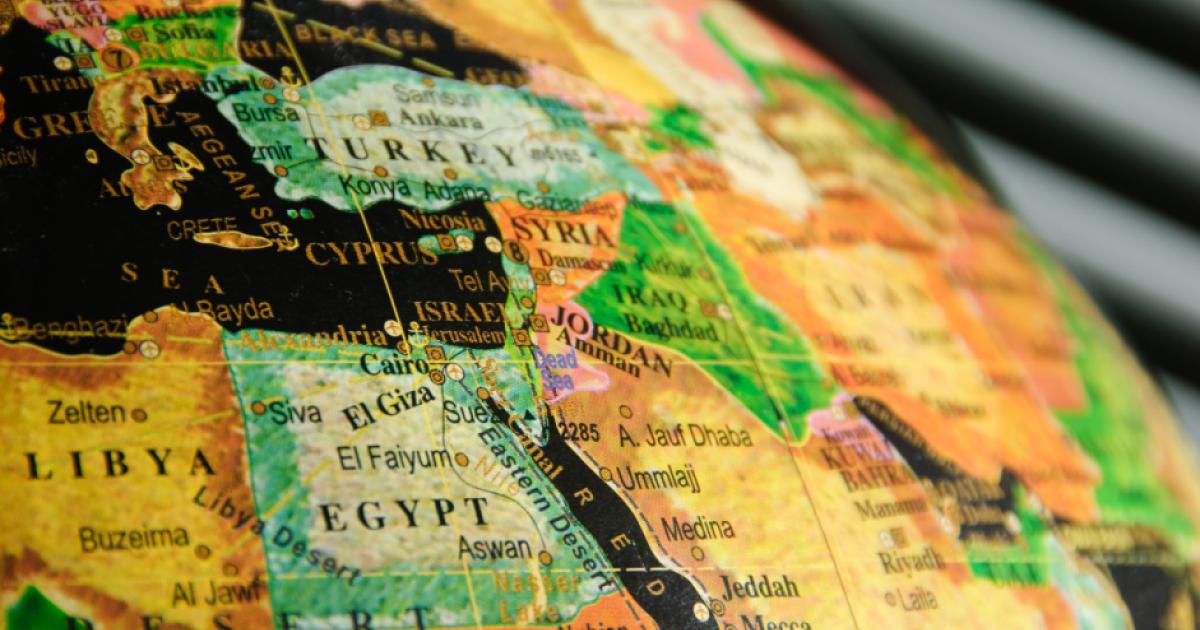In August 1920, in the Parisian suburb of Sèvres, envoys of the allied powers signed an eponymous treaty dividing into zones of influence the fallen Ottoman Empire and Islamic Caliphate. The regime of "mandates" it instituted was simultaneously the culmination of European imperialism in the Middle East, and its final undertaking. Mandates were not meant to last: it was a phase of foreign trusteeship, in anticipation of independence that, by the 1970s, would be the norm across the region.
But independence would only bring incomplete sovereignty, and nowadays only to those realms where there is still a state standing to claim it. The drones and fighter jets of distant militaries own the skies, killing rebels and terrorists. The seas are patrolled by foreign navies, keeping trade routes from pirates. Foreign military bases or missions pepper the land. 100 years since the Treaty of Sèvres, the region is still spoken for in the anachronistic language of zones of influence, foreign interference, and proxies.
In the middle of the 20th century, Imperialism gave way to the Cold War, and one type of foreign influence was replaced by another. The Middle East was on the front lines of that conflict both because of its geography, and because of its extraordinary oil reserves. The stakes were clear: it was a zero-sum game between Soviet and Western influence, which soon meant American, as Britain and France withdrew. The climax came in the 1980s, in the hills of Afghanistan, where the Soviet Union finally faltered.
By 1990, America was a hegemon in a region accustomed to, and perverted by, dependency on foreign military assistance and economic rent from hydrocarbons. The goal shifted to stabilizing regimes, making them somewhat more respectful of human rights, somewhat more democratic, and foremost, far less belligerent with each other. After 2001, the priority became eradication of the mujahedeen turned jihadists, some of whom had brought violence to American shores.
During that moment, in the 1990s and 2000s, hegemony was both a fact and a choice. Pax Americana, as it would be known, was a world system regulated by Washington's unmatched capacity to project power, and the ability to push through strategic decisions uninhibited by the need for multilateralism. But Pax Americana disappointed. Relative successes in the Balkans and Columbia could not be replicated in the broader Middle East. It was not just Afghanistan and Iraq; the kind of political order the US had hoped to see never materialized anywhere.
The first lesson of hegemony is that success demands a perimeter of action isolated from foreign interference. Russia was too weak in the mid-1990s to cause much trouble in the Balkans, and in Columbia, no one had particular interests in rescuing the FARC and narco-traffickers. The broader Middle East was another affair. The duplicity of Pakistan, awkwardly a natural ally of both the US and the Taliban, made Afghanistan a decades-long quagmire. Iran and Syria undermined the American effort in Iraq.
The second lesson is the staggering fiscal asymmetry of hegemony. Spoilers spent a fraction of the hundreds of millions of dollars the US was burning every month to build democracies. The country bore these costs thanks to its unique financial depth and a structural trade deficit that had China acquire over $1 trillion of US sovereign debt. America was at war, but taxes kept on a downward trend. However, foreign policy plays out on two clocks: a fiscal clock and a political clock.
America's vulnerability is to have the shortest of political clocks, reset, in part or in whole, every two years by the electoral cycle. Each campaign brings foreign policy into question, sometimes for good reasons, but also for political posturing. Incumbents are declared failures; successors question alliances, reshape priorities and jettison policies to make the point, often at the cost of hard-earned progress. And thus American policy teeters, one step forward and two steps back every step of the way, when rivals can keep on course. Domestic bickering leads to always underestimating the agency of other players and the open-ended nature of the game.
That reality would not sink in until the end of the Obama administration. Hegemony had already been phased out, replaced with multilateralism based on mutual interest. It was hoped that universal threats—there were three: greenhouse gasses, nuclear proliferation and jihadists—would bring the international order of nations to come together cooperatively.
Concessions were made to sovereigns to bring them onboard this collective endeavor. The recognition of China's ascent on the global stage came with the unsaid renunciation of any American mission to push for human rights and democracy. Autocratic regimes did well from that era onward, modernizing where it mattered, concentrating power in fewer hands, strengthening surveillance and control of their populations.
For the broader Middle East specifically, that meant the 2009 Green movement in Iran, and the Arab Spring two years later, were mostly left to follow their natural course. America did the bare minimum to support populations, and seemed to regret the little it did, as in Libya. The Arab Spring was orphaned, but like it or not, it had opened an arena where the parameters of the new order would be tested.
By the end of the 2010s, one can think of two dozen simultaneous conflicts across a range from Mauritania in the West to Kashmir in the East, from Sebastopol in the North to Kismayo in the South. The theater is spreading, in a throwback to the times before the treaty of Sèvres, when the "Great Game" played out in Central Asia and the "sick man of Europe" (the Ottoman Empire) was apportioned by foreign powers.
The stakes show in three categories: economics interests, domestic political necessities, and vanity. To start with economics, fossil fuels remain important, especially to China, the main importer of energy from the region (and the main exporter of goods to the Gulf). It is not a sellers’ market though. Disruptions in supply would hurt many segments of the global economy, but oil is not the strategic stranglehold it was from WWI to the end of the Cold War.
Beyond commerce, China timidly uses the region to signal its status as a global power. The world is getting accustomed to the deployment of Chinese vessels beyond the South China Sea and to the presence of forward military bases like the one in Djibouti. But there is no apparent will to displace the US in the region. The infamous Belt & Road Initiative is a new Great Wall, a fanciful construction project to impress barbarians and serve the nationalist narrative that bolsters autocracy back in the Middle Kingdom.
Russia similarly calls upon nationalist sentiments, although more colored by imperial nostalgia than carried by realistic ambitions. The land grabs in Georgia, Crimea and Ukraine speak to the reconstitution of a lost past, and the intervention in Syria is an exercise in presidential vanity, a pretext to stand up to the American president on the international stage as in the good old days of the Soviet Union.
For Europe, the first-order priority is to stem migration from the Mediterranean. The flow of migrants and refugees has critically destabilized the EU, propelling at the forefront of politics anti-establishment parties of the extremes. Secondarily, the more distant Gulf is an important market for civilian aircrafts and expensive weapon systems. Europe is drawn to the region, but with no capacity to supplant the United States.
Turkey is marching to its own drum, inspired by neo-Ottoman, pan-Islamic fantasies, and provoked by knee-jerk hostility to Kurdish empowerment. With the Turkish economy crumbling once again, as its army battles the Kurds in Syria, the US could be called upon, via the IMF, for another bailout.
The GCC states – US protégés burned by the oscillations of US policy and consumed by the personal ambitions of young rulers – have broken with a tradition of passivity to project power with a vengeance. Doha was first on the starting line, but the Riyadh-Abu Dhabi axis has caught up, going on the warpath in Syria, in Yemen, in Egypt/Libya, against Qatar, against Iran, and against the Muslim Brotherhood, no less. Although militarily and fiscally challenged, the risks for them are hedged for as long as they can call American might to their side in local enmities.
Enmity is with Iran, a regime forged during a terrible war against Iraq in the 1980s, which has acquired with the IRGC the instrument to succeed against adversity and is now paradoxically captive of its creation. Its interest in maintaining a corridor to the Mediterranean (via friendly regimes in Iraq, Syria and Lebanon) is institutional, not strategic. Iran is as successful in the field as its success is useless—and with sanctions to endure, its fiscal clock could be running out.
For the US, there is little to win in the region, but that does not mean there is no fear of loss. After all, it is the place to be seen. The Middle East is the premier stage to signal to the world the kind of power it is; the way it stands by allies and thwarts rivals. Then there is the uncertainty of what would become of the region were the US to disengage. Something else will fill the vacuum: another foreign power, a pack of contentious powers, a grid of militias and terrorists, a gaggle of militarized autocrats. One could also imagine something "positive"… In truth, there is no reading that future.
As far as the present goes, though, the US is not upholding an American design on the region; it is the unfortunate custodian of the crumbling house of what is. Sèvres and other treaties like it laid the foundations, and the edifice rose over the century since, government after government, regime after regime, each epoch contributing specific features to the whole. For all its apparent volatility, the regional system and its dysfunctions are carried by tremendous inertia.
That reality is often lost on new American presidents. Prone to epiphanies, they put their names on a doctrine and fancy that game changing initiatives will deliver a new order. There is no such thing as a "right" policy: only trade-offs with somewhat predictable, and occasionally horrifying, consequences. What is easy to predict is that the US will never like the outcome unless it can get over its political inconsistency and play a longer game.
US policies that deliver are locked-in within the structure of the deep state (a regime of military cooperation), and/or within civil society (a robust lobby group, which election after election is in a position to influence Congress and constrain executive decisions). And then one discovers the downside of success: an enduring policy may well achieve its explicit goal, but it also locks in side effects. No one said it was easy.







